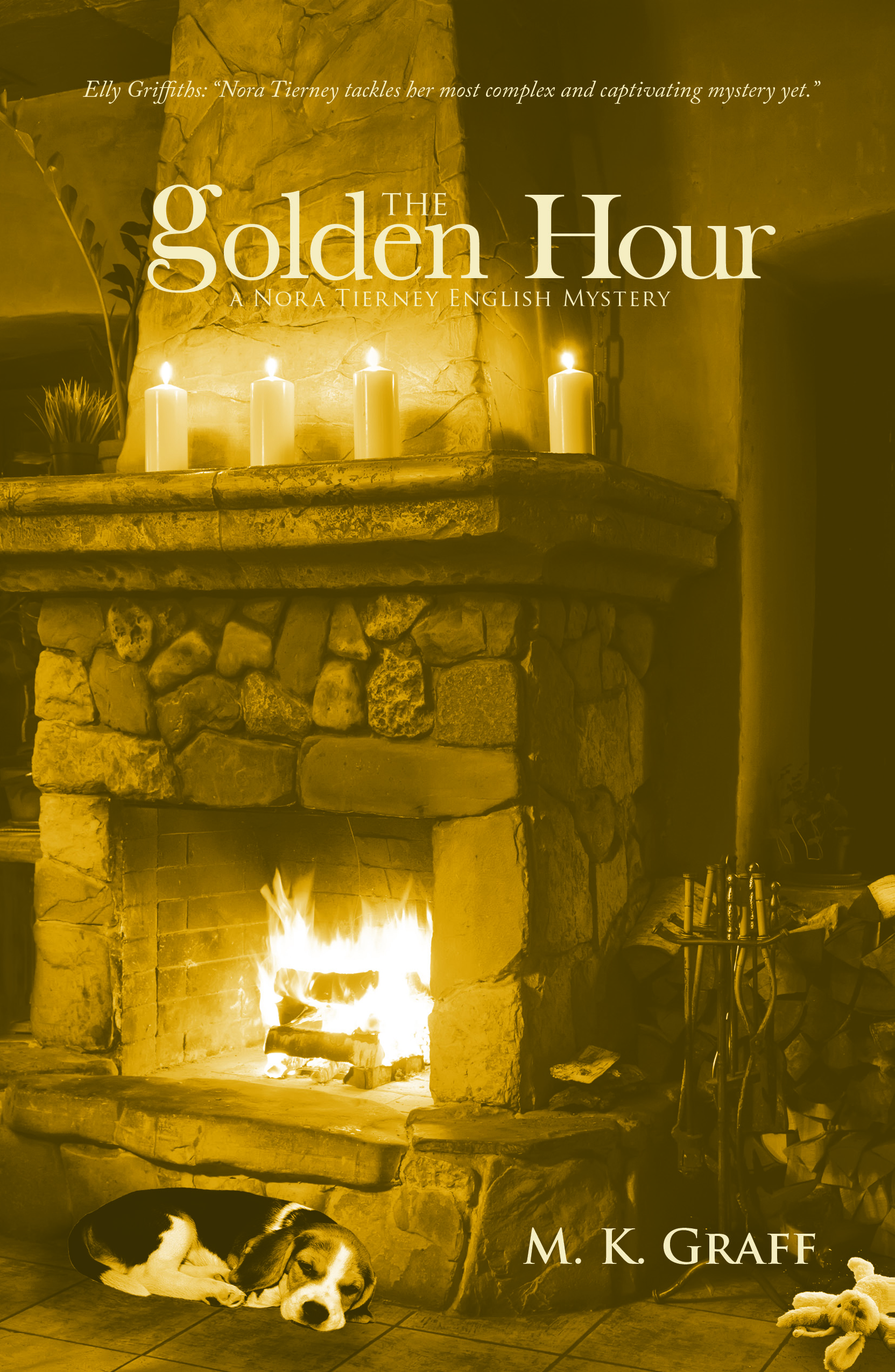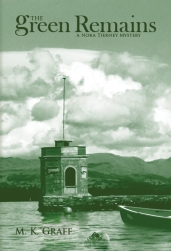This review represent a departure in two ways on our American Independence Day. First, Auntie M usually does crime fiction but occasionally adds a book in a different genre she thinks you should not miss. This is one of those occasions.

Second, I am stepping out from behind my third person Auntie M persona to address readers as myself, because this book contains such a personal story that I feel it deserves that approach. It’s deliberately posting on the 4th of July because of all of the very American ideals the book addresses. It’s an absorbing and literate read, and I hope readers will take the journey offered with emotional insight into a rape case, offered by the victim herself.
I became acquainted with author Emily Winslow through her crime series, set in Cambridge where she lives. The series feature investigators Morris Keene and Chloe Frogman, and the novels are told in multiple first person narratives. The series is acclaimed for its ability to bring each character’s situation to life, and can be read as stand-alones in terms of the mystery. So far these are: The Whole World, The Start of Everything, and The Red House. I knew Winslow been a victim of rape during her college years from an article she’d written years ago that I’d read.
It is while Winslow is working on revisions to The Red House that she gets news that is at once startling and will turn her world upside down. A man arrested in New York has DNA that matches the eerily similar rape in Pittsburgh to hers, only a few months later. Winslow’s goal early on is the premise of this memoir, and she states it in her opening: To get to say what happened; and to be who he’s punished for.
In 1992, when a student at Carnegie Mellon University’s prestigious drama school, Winslow is attacked when a man follows her into her apartment building and brutally rapes her, smothering her screams with his hand pushed over her face and mouth until she quiets. She files her report, stays in school, lives with friends, and writes poetry about the incident to cope. She ultimately decided acting is not for her.
But as she grows and matures, marries a Brit, has two sons and moves to Cambridge, she never stops pestering the Pittsburgh detectives about her case. She calls herself “a beggar”, calling them every few years to ask them to look again at her case, always talking to someone new. Detectives retire, move on, transfer. Each call means having to explain who she is, explain the case again, “because no one remembers, except for me . . . And him.”
She takes to pestering detectives to test her DNA against this new arrest, and after an agonizing wait, gets her answer: it’s a match. She was raped in January, while the other woman, also a match, was raped in November, and both by a man with a history or serial rape, an ex-con named Arthur Fryar, who resists extradition from New York to Pittsburgh, despite its eventuality. Winslow will get her chance to fly to Pittsburgh for pretrial hearings that will hopefully bind him over for trial–the trial of Fryar for raping her, Jane Doe January, as she’s referred to in court documents to protect her privacy, and the other woman, Jane Doe November.
The bulk of the book is taken up with Winslow’s preparation for this trip and then for the upcoming trial, working with a series or prosecutors and attorneys, linking with the old detective on her case, a powerful ally, and trying to shield her two young sons from what is happening even while trying to explain it to her British circle of friends.
She will encounter a very American vs British culture gap: she longs to be asked for details about how the hearing went after the huge emotional and physical trip to Pittsburgh, but she’s initially disappointed when she slams up against true Brit reticence. Her English friends are reluctant to probe, worried about upsetting her when she’s desperate to ventilate about the experience. Then Winslow realizes she must give them a clue, permission even, to indicate she’s willing to talk it all. It’s a very American concept, she notes, to need help by talking and sharing.
She finds great support from her husband, and a clear friend and wonderful outlet in a college chaplain, and bonds closely with him. She spend hours Googling Fryar, trying to understand what would make a person rape a stranger. She learns he likes his victim’s legs and decided she will rob him of the opportunity to see hers in court and wear pants. She finds his family roots, the other crimes he’s committed, the way he’s tried to escape justice for years. The ending of this episode comes as Winslow is shattered in grief, and is totally unexpected, yet it is clear she has grown stronger from the experience.
Winslow is brave enough to document her feelings as they hit her, even as she recognizes that some might question them. She brave enough to share them, despite being clear that at times she was very needy. She has the right to be needy for what she is going through, what she went through, and what she still lives with.
This is not a social treatise or a commentary on a black man raping a white woman, nor should it be. This is one very honest woman’s story, told in such a way that it almost reads as a suspense legal thriller. As such, it’s very different and difficult to characterize, and I feel should stand on it is own merits. This is a truly intimate story about the process and emotions one woman undertakes in trying to bring her rapist to justice over two decades after the act, and what she learns about herself in the process. Highly recommended.
With grateful thanks, Emily Winslow agreed to answer a few questions regarding Jane Doe January:
Marni Graff: I know you’ve written articles before about the rape you endured years ago, which I read because I enjoy your crime series. But this is a very different and personal book. You allow readers inside your private thoughts and actions during a year filled with stresses and heartache. You don’t flinch or look away when many others would have during an intimate look at the long-delayed prosecution of your serial rapist. What influenced that decision to allow readers inside this painful journey?
Emily Winslow: My first audience for this work was myself, and the value in it was in being as direct as possible about what I understood, what I felt, and what I wanted. I needed to figure all of that out, as honestly and as fully as I could.
Now that I’m a little more distant from the prosecution (it ended almost two years ago), I’m developing some perspective I didn’t have then, but I value the immediacy of the book as it is, and the way that it’s an artifact of exactly what I went through at that time, in all of its intensity and specificity.
When I first decided to publish, I was still very close to it, and the feelings and opinions I described in the book still felt very “of course!” If I had taken more time before publishing, I might have second-guessed myself. I’m glad that I didn’t.
People often mention the therapeutic value of “getting it all out there,” but for me the deeper layer of value came from taking what I admitted on the page and using my skills to shape it into something that stands alone, apart from me. I hope I made something out of it that’s more than just a factual admission of the whole experience. I wanted to write something well-structured, well-told, beautiful. That attempt is what felt comforting to me.
So it seemed natural, as a writer proud of my work, to publish.
MG: As a mystery writer, I understand how authors put themselves, people they know, even situations they’ve been in, into their work. Sometimes this is deliberate but it can also happen in unexpected ways that are only recognized long after the writing is complete. You had this experience upon reflection: a known mirroring of a character, plus an unknown mirroring. The revisions you were doing as you experienced this stressful year led to that revelation. Was this startling, or more of a surprise when you realized the genesis of one of the characters in your latest book?
EM: It’s always startling to me when I discover a hidden motivation or personal meaning behind my choices in fiction, but they’re inevitable! I do make a lot up, but it’s often using bits of memories, hidden feelings, and unconsciously figurative images of real things. Even one’s observations of others describe one’s own filters and assumptions as much as they describe what’s being seen. That’s part of what makes using fictional first-person narrators so interesting, and it applies to myself as the author as well.
I get asked a lot if my experience as a victim is what pushed me to write crime novels. I honestly don’t know. A lot of people enjoy reading crime fiction without having a personal experience to justify it, and I write crime because I like reading it: I like its huge emotions, life-and-death stakes, the puzzles of its plots, and the challenging themes.
I do think that my personal experience might be what pushes me to be as serious as I am about the effects of crime, on all of the characters. Victims, perpetrators, witnesses, investigators… They’re all affected by the painful events that bring them together.
MG: Many people would not have been as open as you have been in this haunting memoir that is brutally honest. What has been the reception to the book from your family, your friends, and your Cambridge circle? What it what you expected?
EW: The reception from people I know has far exceeded my expectations and even my hopes, in kindness, understanding, and support. I’m very grateful. The reception from readers I don’t know has also been mostly warm, but occasionally there are reactions I wasn’t prepared for. This subject brings out big feelings and strong opinions, and people have assumptions and expectations about the way that victims should be. I focus on the people I know, my daily routines with my family, and the next book (a continuation of my mystery series set in Cambridge).







